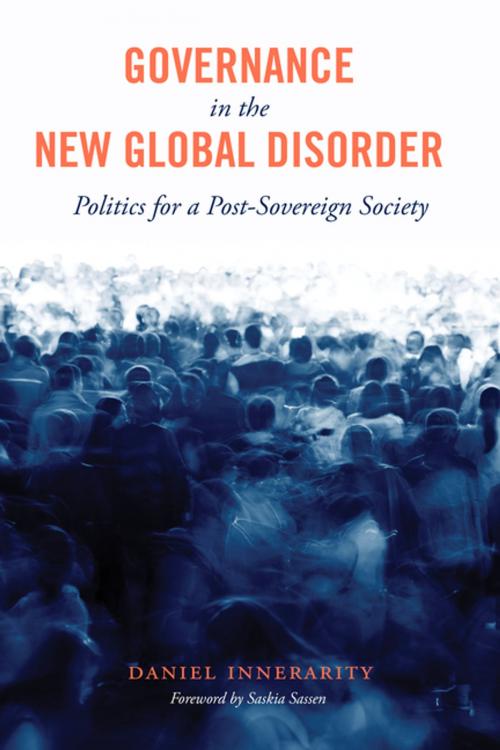Governance in the New Global Disorder
Politics for a Post-Sovereign Society
Nonfiction, Religion & Spirituality, Philosophy, Political, Social & Cultural Studies, Social Science, Sociology, Political Science| Author: | Daniel Innerarity | ISBN: | 9780231542258 |
| Publisher: | Columbia University Press | Publication: | September 6, 2016 |
| Imprint: | Columbia University Press | Language: | English |
| Author: | Daniel Innerarity |
| ISBN: | 9780231542258 |
| Publisher: | Columbia University Press |
| Publication: | September 6, 2016 |
| Imprint: | Columbia University Press |
| Language: | English |
When we talk about globalization, we tend to focus on its social and economic benefits. In Governance in the New Global Disorder, the political philosopher Daniel Innerarity considers its unsettling and largely unacknowledged consequences. The "opening" of different societies to new ideas, products, and forms of prosperity has introduced a persistent uncertainty, or disorder, into everyday life. Multinational corporations have weakened sovereignty. We no longer know who is in control or who is responsible. Economies can collapse without sufficient warning, and the effort to rebuild can drag on for years. Piracy is everywhere. Is there any way to balance the interests of state, marketplace, and society in this new construct of power?
Since national economies have become deterritorialized and political interdependencies aggravate our common vulnerabilities, Innerarity contends that there is no other solution except to move toward global governance and a denationalization of justice. Globalization tries to unify the world through technologies, the economy, and cultural products and styles, but it cannot articulate or regulate political and legal equivalents. Everyone faces the same risks to their security, food supply, health, financial stability, and environment, and these risks demand a new global politics of humanity. In her foreword, the sociologist Saskia Sassen isolates the key takeaways from Innerarity's argument and the solutions they present to growing global tensions.
When we talk about globalization, we tend to focus on its social and economic benefits. In Governance in the New Global Disorder, the political philosopher Daniel Innerarity considers its unsettling and largely unacknowledged consequences. The "opening" of different societies to new ideas, products, and forms of prosperity has introduced a persistent uncertainty, or disorder, into everyday life. Multinational corporations have weakened sovereignty. We no longer know who is in control or who is responsible. Economies can collapse without sufficient warning, and the effort to rebuild can drag on for years. Piracy is everywhere. Is there any way to balance the interests of state, marketplace, and society in this new construct of power?
Since national economies have become deterritorialized and political interdependencies aggravate our common vulnerabilities, Innerarity contends that there is no other solution except to move toward global governance and a denationalization of justice. Globalization tries to unify the world through technologies, the economy, and cultural products and styles, but it cannot articulate or regulate political and legal equivalents. Everyone faces the same risks to their security, food supply, health, financial stability, and environment, and these risks demand a new global politics of humanity. In her foreword, the sociologist Saskia Sassen isolates the key takeaways from Innerarity's argument and the solutions they present to growing global tensions.















